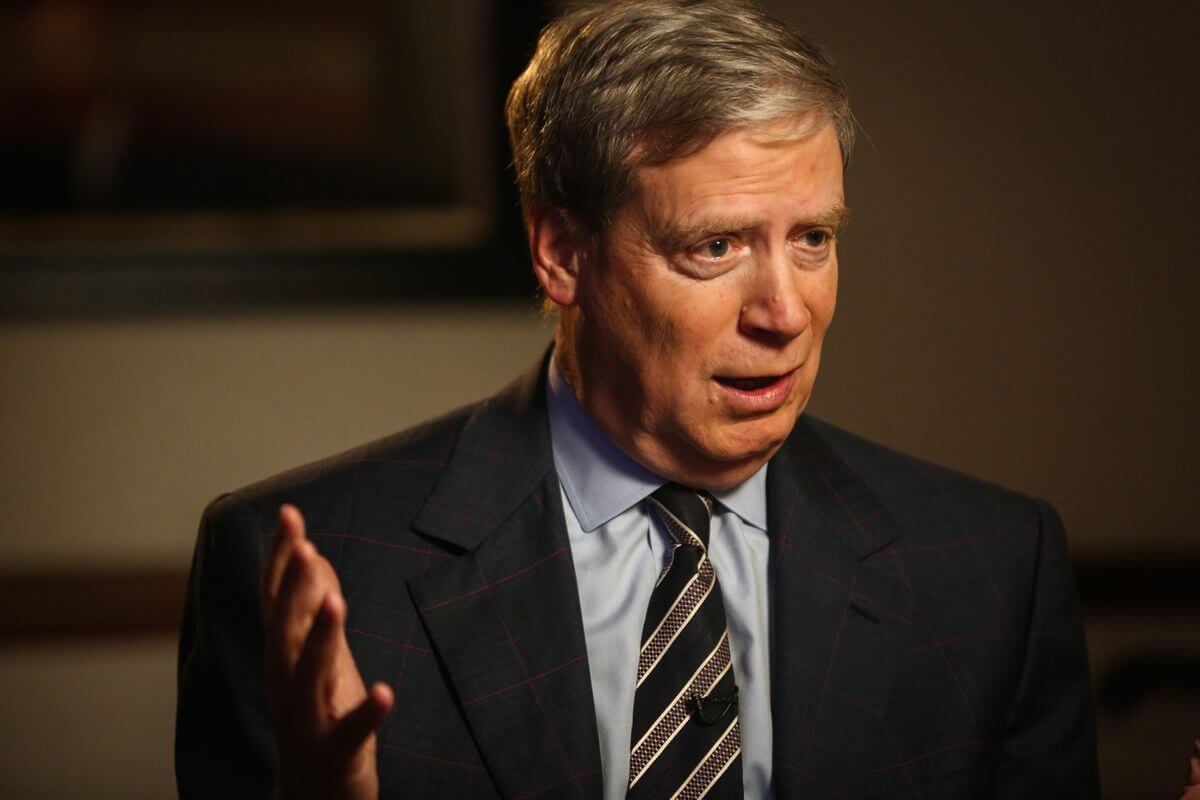Stanley Druckenmiller Criticizes High Tariffs, Advocates for 10% Limit
09.04.2025 12:05 1 min. read Alexander Stefanov
Billionaire investor Stanley Druckenmiller has once again criticized high tariffs, reiterating his long-standing stance that tariffs should be capped at 10%.
His comments come after President Trump recently imposed reciprocal tariffs, some reaching as high as 54%, particularly on China.
Druckenmiller, who has been vocal about his views in the past, took to social media to clarify his position, stating that while he doesn’t support tariffs in an ideal scenario, the U.S. fiscal situation leaves few options for raising necessary revenues.
He emphasized that given the nation’s massive spending and interest obligations, the government needs alternative revenue sources, with tariffs being one of the least harmful choices.
He argued that a consumption tax, like tariffs, would be a better option than increasing income taxes, even though tariffs come with the risk of retaliation from other countries. For Druckenmiller, the key is keeping tariffs at a manageable level, believing that staying within the 10% range minimizes potential harm.
Druckenmiller’s comments come after Trump signed an executive order imposing a 10% tariff on all imports to the U.S. and introduced higher tariffs for specific countries, particularly China. The new tariffs, which include rates up to 54% for China, are set to take effect on April 9.
-
1
U.S. Recession May Already Be Locked In, Economist Warns
23.06.2025 12:00 1 min. read -
2
Tom Lee Warns Fed Could Trigger Market Turmoil With Delayed Pivot
22.06.2025 19:00 3 min. read -
3
Fed’s New Projections Hint at a Slower Easing Cycle Through 2026
19.06.2025 15:00 2 min. read -
4
Trump Targets Fed Over Missed Rate Cut Opportunity
20.06.2025 9:00 1 min. read -
5
UK Inflation Stalls at 3.4%, Spotlight Shifts to BoE’s August Meeting
19.06.2025 9:00 2 min. read
Robert Kiyosaki Predicts When The Price of Silver Will Explode
Robert Kiyosaki, author of Rich Dad Poor Dad, has issued a bold prediction on silver, calling it the “best asymmetric buy” currently available.
U.S. PCE Inflation Rises for First Time Since February, Fed Rate Cut Likely Delayed
Fresh data on Personal Consumption Expenditures (PCE) — the Federal Reserve’s preferred inflation gauge — shows inflation ticked higher in May, potentially delaying the long-awaited Fed rate cut into September or later.
Trump Targets Powell as Fed Holds Rates: Who Could Replace Him?
Federal Reserve Chair Jerome Powell is once again under fire, this time facing renewed criticism from Donald Trump over the Fed’s decision to hold interest rates steady in June.
U.S. National Debt Surge Could Trigger a Major Crisis, Says Ray Dalio
Billionaire investor Ray Dalio has sounded the alarm over America’s soaring national debt, warning of a looming economic crisis if no action is taken.
-
1
U.S. Recession May Already Be Locked In, Economist Warns
23.06.2025 12:00 1 min. read -
2
Tom Lee Warns Fed Could Trigger Market Turmoil With Delayed Pivot
22.06.2025 19:00 3 min. read -
3
Fed’s New Projections Hint at a Slower Easing Cycle Through 2026
19.06.2025 15:00 2 min. read -
4
Trump Targets Fed Over Missed Rate Cut Opportunity
20.06.2025 9:00 1 min. read -
5
UK Inflation Stalls at 3.4%, Spotlight Shifts to BoE’s August Meeting
19.06.2025 9:00 2 min. read


